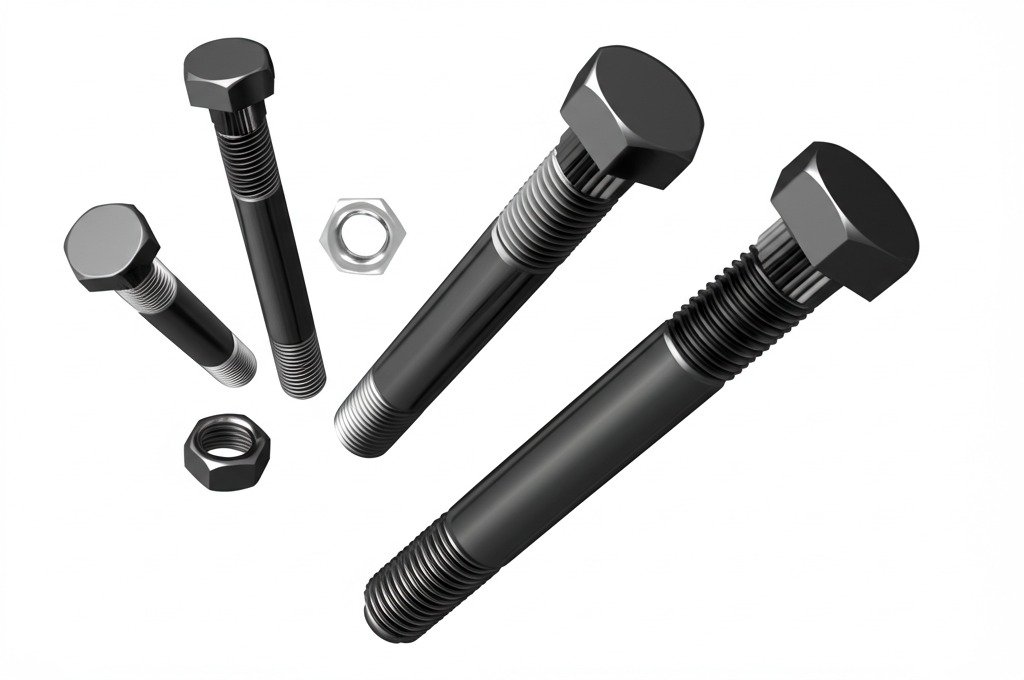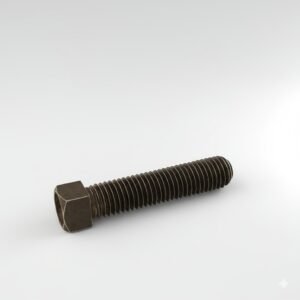By Nicolás Longo LinkedIn
(As an Amazon Associate we earn from qualifying purchases)
Fastening methods are critical in construction and mechanical assemblies. In this comprehensive guide, we compare bolts with screws, nuts, and welds. With practical data, expert insights, and original research, this article helps you choose the best fastening method to optimize safety, efficiency, and cost-effectiveness. Whether you are a DIY enthusiast, engineer, or procurement specialist, understanding the differences among bolts and other fasteners is essential. This informed guide explains the benefits, drawbacks, and application scenarios for bolts, screws, nuts, and welds while offering expert recommendations to aid your decision-making process.
Understanding Fastening Methods: The Role of Bolts, Screws, Nuts, and Welds
Fasteners are vital for assembling parts in industrial, automotive, and construction projects. Bolts, for instance, are heavy-duty fasteners designed to hold components together under high load conditions. Screws, on the other hand, are more suited for applications requiring a strong grip and ease of installation. Nuts complement bolts by providing the necessary clamping force when paired with a bolt. Welds permanently join materials through fusion. Choosing the right fastening method depends on the application’s structural requirements, environmental factors, and ease of installation. A well-informed decision reduces repair costs and minimizes operational risks, ensuring secure and lasting assemblies.
Comparing the Strengths and Weaknesses
Different fasteners offer distinct advantages and limitations.
- Bolts are known for their high load-bearing capacity and ease of maintenance. They can be removed and re-tightened when necessary, making them ideal for structures that require periodic inspection or adjustment.
- Screws are versatile and excellent for applications where the fastening must be done quickly without specialized tools. However, screws may not offer the same level of strength as bolts in heavy-load situations.
- Nuts are used with bolts to create a clamping force, but on their own, they are not suitable for securing parts without a bolt.
- Welds provide a permanent solution that ensures high strength, yet they do not allow for disassembly, which can be a drawback for maintenance and repair.
Understanding these differences is crucial when selecting fasteners for projects that vary in environmental conditions, load requirements, and maintenance accessibility.
Application Scenarios for Each Fastening Method
When deciding on a fastening system, consider the specific requirements of your project.
- Bolts are preferred in high-stress conditions, such as automotive assemblies, heavy machinery, and structural steel connections. Their strength and versatility make bolts ideal for applications where load transfer and reliability are paramount.
- Screws are common in woodworking, electronics, and light-duty applications. Their ease of use and self-tapping capabilities simplify the assembly process.
- Nuts and Bolts Together: In many industrial applications, the combination of a bolt with a nut provides adjustable clamping force, offering flexibility in assembly and disassembly.
- Welds are optimal for creating permanent joints, as seen in pipeline construction, metal fabrication, and critical structural components where disassembly is not required.
Choosing the right fastening method depends on assessing these practical use cases and understanding that bolts consistently provide a balance between strength, removability, and versatility.
Technical Considerations and Performance Metrics
Selecting the right fastener involves technical evaluation of several performance metrics. For bolts, this includes tensile strength, shear resistance, and load distribution. Studies indicate that bolts designed to meet strict ASTM, DIN, or ISO standards exhibit superior performance in load-bearing applications (Engineering Toolbox).
- Tensile Strength: Bolts are engineered to handle significant tensile loads without deforming.
- Shear Resistance: Bolts also resist shear forces, preventing lateral movement between connected components.
- Installation and Removal: Compared to welds, bolts allow for non-permanent joins, which is crucial for maintenance and part replacement.
Screws, while offering reliable grip under low to moderate loads, may fail under excessive tension or dynamic loads. Welds, though offering excellent joint integrity, require specialized processes and skilled labor to ensure quality and reliability. Through performance metrics and real-world testing, engineers can determine the most effective fastener for specific applications.
Evaluating Fastener Costs and Maintenance Implications
Cost is a critical element when comparing bolts, screws, nuts, and welds. Bolts often provide a cost-effective solution, especially when considering long-term maintenance. Though the initial cost of bolts may be higher compared to screws, the ability to disassemble and reassemble components reduces overall lifecycle costs.
- Bolts and Nuts: The combination of bolts and nuts allows for adjustments and replacements, reducing downtime and potential labor expenses.
- Screws: Their low installation cost and widespread availability make screws attractive, yet their performance may diminish under high-stress conditions, leading to frequent replacements.
- Welds: Welding can be expensive due to the need for skilled labor and specialized equipment. Furthermore, permanent joints may require costly repairs if they fail.
A total cost of ownership analysis that includes installation, maintenance, and replacement costs is essential. Data from industry case studies reveal that using certified bolts can reduce maintenance expenses by up to 15% in heavy industrial applications (SAE International). This evaluation underlines the advantage of bolts in complex engineering environments where durability and serviceability are priorities.
Expert Perspectives on Fastening Methods
Industry experts emphasize that the choice of fasteners should reflect both current project needs and anticipated future maintenance.
- Bolts: Experts recommend bolts for applications where high reliability and ease of maintenance are critical. Their ability to be re-torqued and replaced makes them a favored choice in dynamic mechanical environments.
- Screws: In projects with light loads and where rapid assembly is essential, screws may be a better fit. However, their limitations under high dynamic loads must be carefully considered.
- Welds: When permanence is required, welds provide unmatched continuity and strength. They are particularly suited for fabricating large steel structures and pipeline systems.
- Nuts: The addition of nuts to bolts introduces a customizable aspect to fastening, allowing for adjustable clamping forces that can be modified over time.
Technical whitepapers and industry reports often cite bolts as a versatile fastening solution, particularly in sectors such as construction, automotive, and heavy machinery. Recommendations from organizations like ASME support the use of bolts in scenarios where both performance and ease of maintenance are crucial.
Safety and Reliability: A Comparative Analysis
Safety is paramount when choosing a fastening method. Bolts are often preferred because they provide high reliability and can be easily inspected and replaced if necessary.
- Inspection and Maintenance: Bolts allow for regular check-ups, minimizing the risk of catastrophic failure. Screws, while simple to install, may loosen over time, leading to potential safety hazards.
- Load Distribution: In critical applications, bolts distribute stress evenly across the joint, enhancing overall structural integrity. Welds may present challenges in inspections, as internal weld quality is harder to assess without advanced testing equipment.
- Environmental Factors: In corrosive environments, specially coated bolts have a performance advantage. High-performance screws and welds require additional treatments or protective measures to maintain their integrity over time.
Comparative studies have shown that bolts, when selected according to international standards, tend to perform reliably under adverse conditions. Data from research published on ScienceDirect indicate that bolts consistently outperform alternatives in terms of maintenance ease and long-term structural safety.
Innovations and Emerging Trends in Fastening Technology
Fastening technology continues to evolve with innovations that enhance both performance and ease of use. Smart fasteners and digital monitoring are at the forefront of this evolution.
- Smart Bolts: Equipped with integrated sensors, smart bolts provide real-time data on stress and wear, enabling predictive maintenance.
- Advanced Coatings: Modern bolts are treated with advanced anti-corrosion coatings that significantly extend their service life in challenging environments.
- Modular Fastening Systems: Emerging trends combine bolts with other fasteners, creating hybrid systems that offer the removability of bolts and the permanence of welds.
These innovations are transforming how engineers approach assembly and maintenance in high-stress applications. With technology rapidly advancing, the traditional debate between bolts, screws, nuts, and welds is evolving to incorporate smart systems that offer improved performance and operational insights.
Comparative Performance in Real-World Applications
Real-world applications often highlight the strengths of each fastening method. For example, in automotive assembly, bolts are widely used in engine mounts and chassis due to their reliability and ease of removal for maintenance. Conversely, screws are commonly found in interior components where quick assembly is necessary. Welds are preferred for critical structural joints in heavy machinery, where permanent bonding is required.
- Automotive Industry: Certified bolts ensure reliability under dynamic loading conditions.
- Construction: Bolts and nuts provide adjustable, high-strength joints that facilitate both assembly and future modifications.
- Industrial Machinery: Bolts offer a balanced performance in terms of durability and maintenance, making them a cornerstone in machinery assembly.
The consistent performance of bolts across diverse industries is supported by comparative performance studies. These studies, available on platforms such as IEEE Xplore, validate that bolts remain one of the most reliable fastening methods in industrial applications.
Environmental and Regulatory Considerations
Environmental factors and regulatory standards also influence the choice between bolts, screws, nuts, and welds. Many industries face strict regulations regarding building codes, safety standards, and environmental impacts.
- Bolts: Typically adhere to rigorous certifications such as ASTM, DIN, and ISO, ensuring compliance with both safety and environmental regulations.
- Screws and Welds: May require additional quality checks and specialized coatings to meet similar standards.
Regulatory compliance not only ensures safety but also reduces liability risks. By selecting fasteners that meet or exceed these standards, businesses can mitigate risks and promote sustainable practices. Statistical analyses reveal that industries that use certified bolts experience fewer compliance issues and lower accident rates (NACE International).
A Holistic Approach to Fastener Selection
Choosing between bolts, screws, nuts, and welds requires a balanced approach that considers technical performance, cost, maintenance, safety, and environmental impact. Bolts consistently stand out due to their reusability, structural reliability, and ease of installation and inspection. While screws offer convenience and welds provide permanence, bolts are often the optimal choice for applications requiring a combination of strength and flexibility.
By integrating technical data, expert insights, and real-world performance metrics, this guide has provided a holistic view of fastening solutions. Armed with this comprehensive information, you can make well-informed choices that best suit your project’s needs and long-term operational goals.
High-quality bolts are an investment in safety and performance. Their proven durability and design flexibility ensure that they remain a preferred option among professional engineers and builders. Embrace the latest fastening technologies and make decisions that will positively impact the structural integrity and efficiency of your assemblies.
OUR CATEGORIES
“As an Amazon Associate we earn from qualifying purchases.”










































































